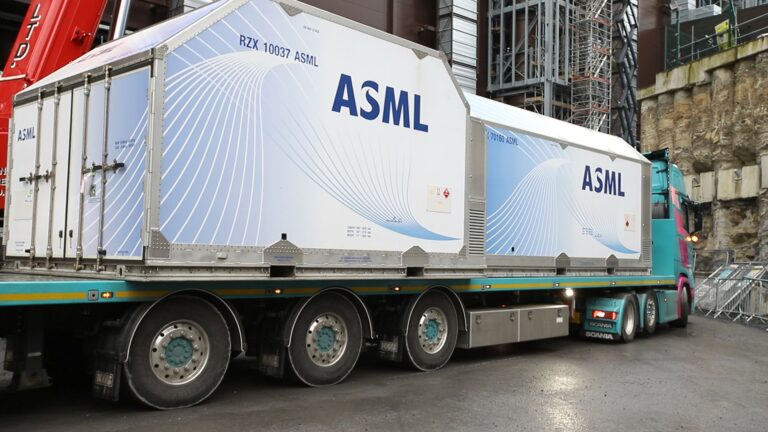The United States is tightening export rules for chip technology to China, which also affects ASML. This has no impact on the company’s annual sales for now, according to the chip manufacturing giant.
The U.S. Department of Commerce has imposed new export restrictions on the export of processors and technology for their manufacture to China. In particular, this concerns exports of AI processors from Intel and Nvidia, among others. These companies are no longer allowed to supply the most advanced components to dozens of countries outside of China.
This is meant to prevent AI processors from getting into Chinese hands through third countries and potentially being used for military purposes.
Plugging holes
The sanctions go a step further and also affect the producers of the high-end machines that manufacture the processors, often sourced from Dutch market leader ASML. The new measures are intended to close any “gaps” left open by the previous restrictions. They mainly concern components within chip-making machines. Not only the most advanced, but also older types of machines. If until now a small percentage of these consisted of American parts, this is now completely prohibited. These parts may also no longer be exported (indirectly) to China.
Although most parts of ASML’s chip-making machines consist of European parts, they also contain some American parts that the machines cannot do without. Thus, the new export restrictions mean that types of machines other than high-end EUV machines can no longer go to China.
In an initial response, ASML says it has yet to assess the impact of the new restrictions. It is also seeking further clarification from the U.S. Commerce Department. ASML assumes that the new restrictions will initially apply to a number of factories in China.
Furthermore, the chip manufacturing giant says it expects that gradually fewer machines will be sold to China, but will find a buyer elsewhere in the region. Moreover, ASML does not expect the new restrictions to impact sales for this year.
Tip: Canon deploys new chip machines to take aim at ASML’s monopoly
